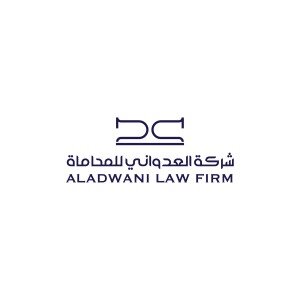Best Mortgage Lawyers in Kuwait
Share your needs with us, get contacted by law firms.
Free. Takes 2 min.
Free Guide to Hiring a Real Estate Lawyer
Or refine your search by selecting a city:
List of the best lawyers in Kuwait
About Mortgage Law in Kuwait
Mortgage law in Kuwait plays a crucial role in the real estate market, providing a legal framework for individuals and businesses to secure loans using real estate as collateral. In Kuwait, the process is governed by stringent regulations to ensure transparency and protect the interests of both lenders and borrowers. Understanding these legal provisions can be vital for anyone looking to engage in property transactions, either for personal use or investment purposes.
Why You May Need a Lawyer
Engaging a lawyer specializing in mortgage law in Kuwait may be necessary for several reasons. Common situations include:
- Navigating the complexities of mortgage contracts and ensuring they are legally sound.
- Assisting with disputes arising from mortgage agreements, whether with a financial institution or other involved parties.
- Protecting rights during a foreclosure process or negotiating terms with lenders.
- Ensuring compliance with local laws when expatriates or foreign entities are involved in property transactions.
- Providing guidance on the impact of mortgage laws on business transactions involving real estate.
Local Laws Overview
Key aspects of local laws relevant to mortgages in Kuwait include:
- Security Interests: Mortgages in Kuwait are typically required to be registered with the competent authorities to be enforceable against third parties.
- Foreclosure Process: Kuwait's legal framework provides specific guidance on the foreclosure process, emphasizing protection for both parties.
- Sharia Compliance: Mortgage transactions must comply with Islamic finance principles, influencing how interest and other fees are structured.
- Consumer Protection: Regulations are in place to protect borrowers from unfair lending practices and ensure transparency in mortgage terms.
- Foreign Ownership Restrictions: There are certain restrictions on property ownership for foreign nationals, which can impact mortgage eligibility.
Frequently Asked Questions
What is a mortgage in Kuwait?
A mortgage in Kuwait is a legal agreement in which a property is used as collateral to secure a loan. If the borrower defaults, the lender may initiate foreclosure proceedings to recover the outstanding amount.
Are there specific requirements for obtaining a mortgage in Kuwait?
Yes, obtaining a mortgage often involves meeting specific financial criteria, providing proof of income, and undergoing a credit assessment by the lending institution. Additionally, expatriates may face additional requirements.
How does foreclosure work in Kuwait?
Foreclosure in Kuwait involves a legal process where the lender seeks to take possession of the mortgaged property after the borrower defaults on the loan. The process is regulated to ensure compliance with local laws.
Can foreigners acquire property and mortgages in Kuwait?
Foreign ownership of property is subject to certain legal restrictions in Kuwait, and as such, obtaining a mortgage as a foreigner can be challenging and may require approval from specific government entities.
How are mortgage disputes resolved in Kuwait?
Mortgage disputes can be resolved through negotiations, mediation, or legal proceedings in the competent courts, depending on the nature and complexity of the issue.
What are the typical interest rates for mortgages in Kuwait?
Interest rates on mortgages in Kuwait can vary greatly depending on market conditions, the lender, and the borrower's financial standing. It is advisable to compare offerings from multiple lenders.
Are there pre-payment penalties for mortgages in Kuwait?
Some lenders may impose pre-payment penalties for mortgages paid off early. Borrowers should carefully review their mortgage agreement for any such clauses.
What documentation is required to apply for a mortgage?
Common documentation required includes proof of identity, proof of income, property details, and any previous credit history records. Specific requirements may vary by lender.
How does Islamic financing affect mortgages in Kuwait?
Many mortgage products in Kuwait are structured to comply with Sharia law, which prohibits excessive interest and requires financing to be based on asset-backed transactions.
Can a mortgage be transferred to another person in Kuwait?
Mortgage transfer in Kuwait may be possible but requires the lender's approval and fulfilling certain legal requirements, including evaluating the new party's creditworthiness.
Additional Resources
Individuals seeking further information or assistance regarding mortgages in Kuwait may find the following resources helpful:
- The Central Bank of Kuwait: Provides regulatory oversight and consumer protection guidelines.
- The Ministry of Justice: Offers legal information and support for contractual disputes.
- Financial institutions and banks: Can provide specifics on mortgage products, terms, and conditions.
- Local real estate agencies: Offer insights into current market conditions and property valuations.
- Kuwaiti Bar Association: Lists qualified lawyers specializing in real estate and mortgage law.
Next Steps
If you require legal assistance with a mortgage in Kuwait, consider taking the following steps:
- Consult with a specialized lawyer familiar with Kuwait's mortgage law to gain clarity on your specific situation.
- Gather all relevant documents and information pertaining to your mortgage or intended property transaction.
- Reach out to local real estate professionals or financial advisors to better understand market conditions and mortgage options.
- Schedule an appointment with a legal professional to review your case and explore available legal remedies or negotiation strategies.
- Ensure compliance with all local legal requirements to avoid any potential legal challenges during the mortgage process.
Lawzana helps you find the best lawyers and law firms in Kuwait through a curated and pre-screened list of qualified legal professionals. Our platform offers rankings and detailed profiles of attorneys and law firms, allowing you to compare based on practice areas, including Mortgage, experience, and client feedback.
Each profile includes a description of the firm's areas of practice, client reviews, team members and partners, year of establishment, spoken languages, office locations, contact information, social media presence, and any published articles or resources. Most firms on our platform speak English and are experienced in both local and international legal matters.
Get a quote from top-rated law firms in Kuwait — quickly, securely, and without unnecessary hassle.
Disclaimer:
The information provided on this page is for general informational purposes only and does not constitute legal advice. While we strive to ensure the accuracy and relevance of the content, legal information may change over time, and interpretations of the law can vary. You should always consult with a qualified legal professional for advice specific to your situation.
We disclaim all liability for actions taken or not taken based on the content of this page. If you believe any information is incorrect or outdated, please contact us, and we will review and update it where appropriate.
Browse mortgage law firms by city in Kuwait
Refine your search by selecting a city.















